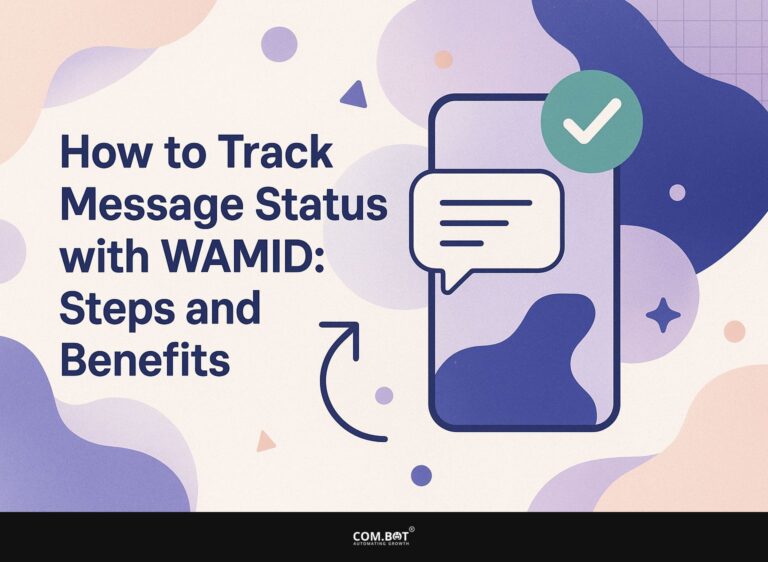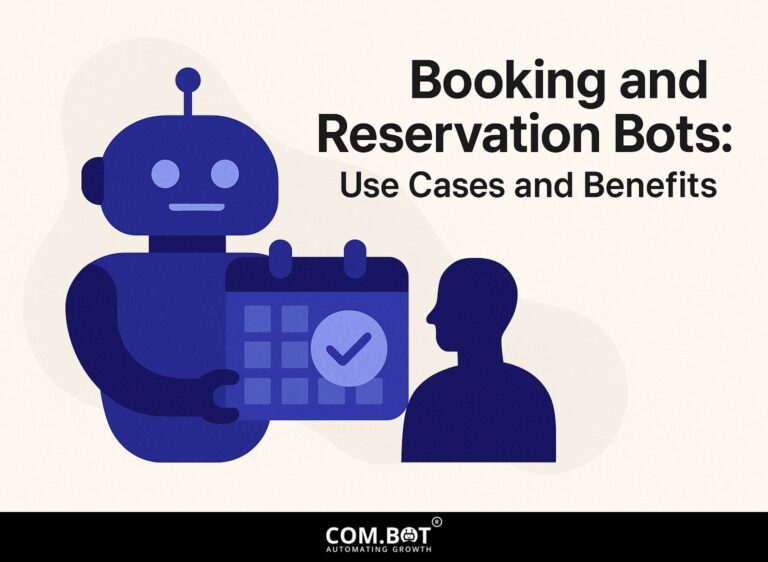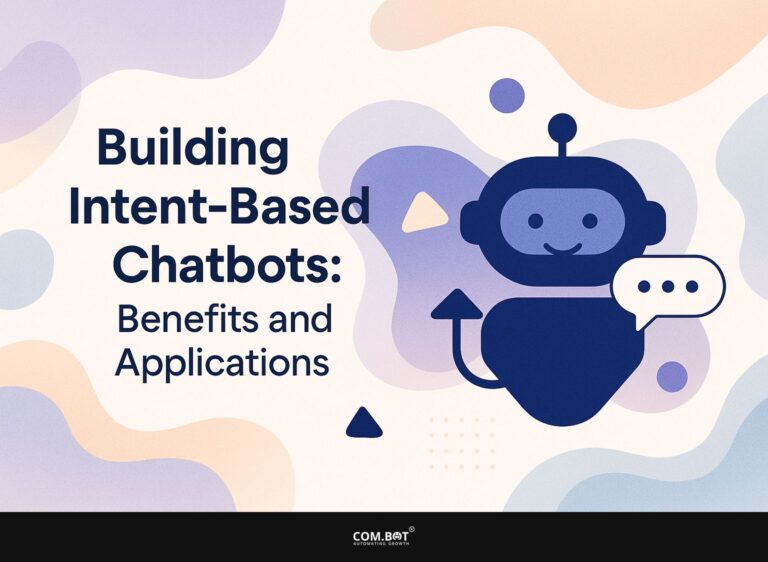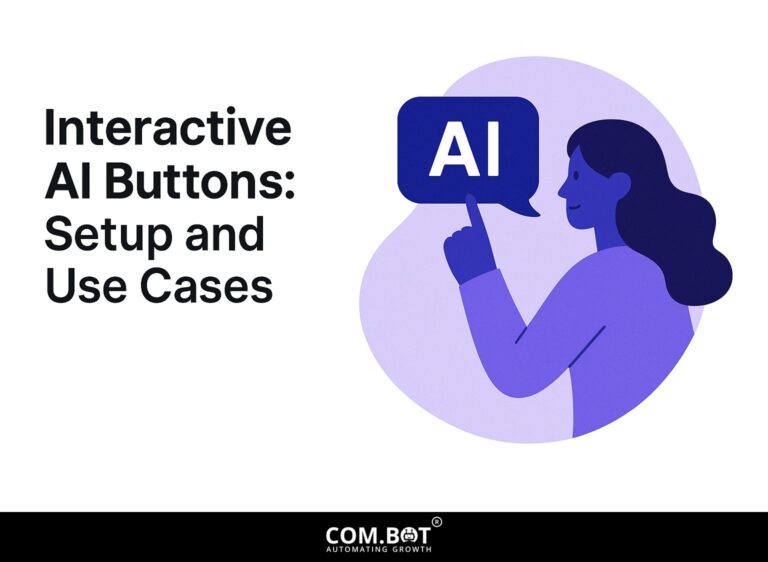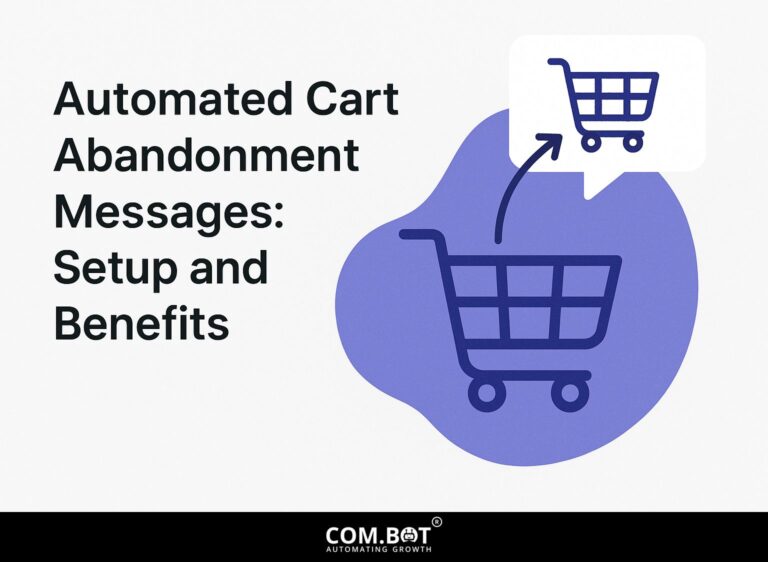WhatsApp AI: Key Features and Privacy Considerations
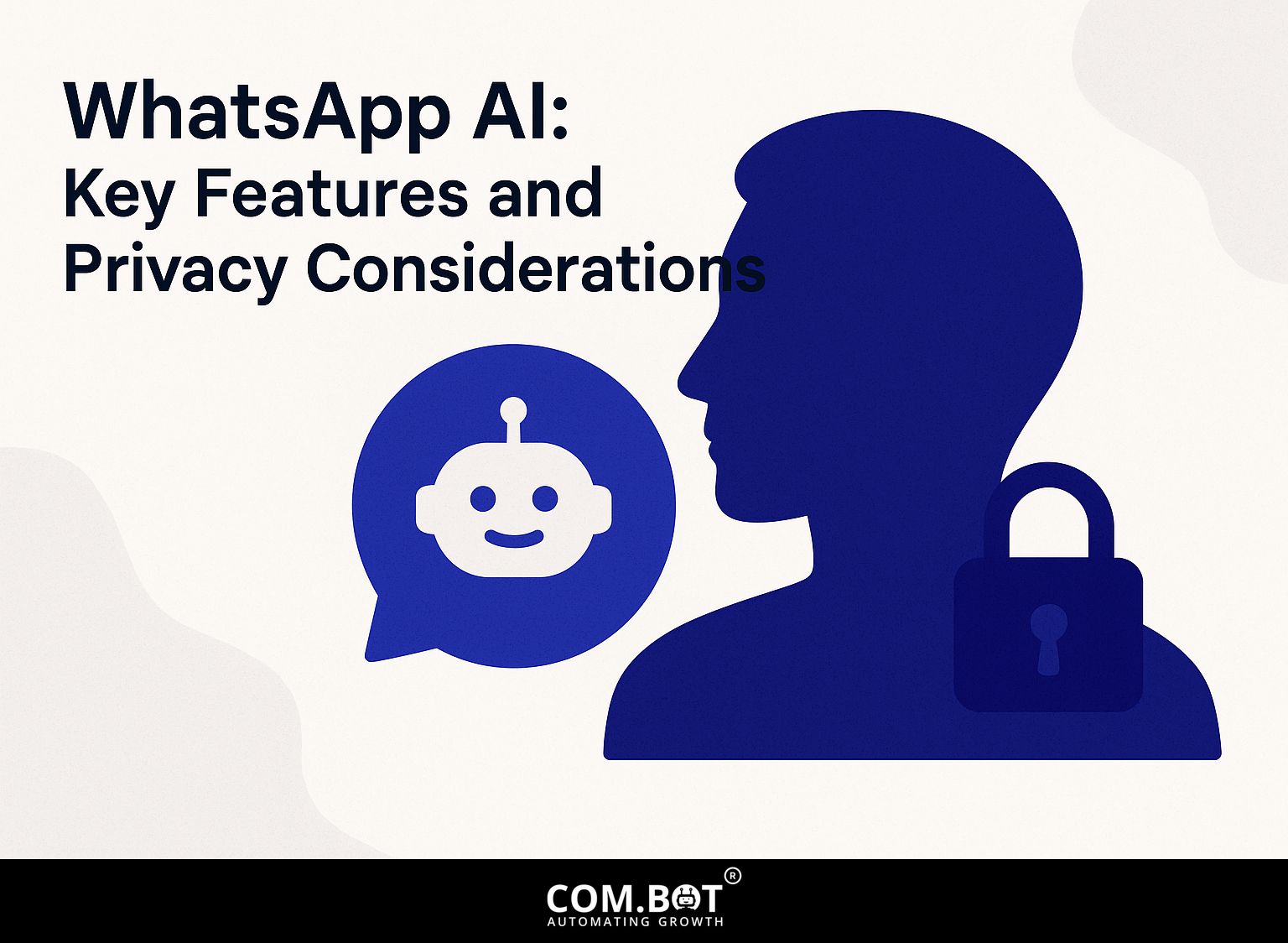
Discover the next level of messaging with WhatsApp AI, featuring intelligent technology and protecting user privacy. Created by Meta, this AI feature improves communication while keeping data secure with private processing and complete encryption. Let’s look at its main features, and you’ll see how WhatsApp protects user privacy while still offering new and useful updates. Learn with us how WhatsApp AI can change your everyday chats.
Key Takeaways:
- The AI in WhatsApp makes messaging easier and faster with its reply prompts and suggestions.
- AI-driven chatbots and customer service make it easier for users to interact with companies and make communication more efficient.
- WhatsApp works to protect privacy, but users should understand data usage and agree to AI features.
- 1 Key Features of WhatsApp AI
- 2 Privacy Considerations
- 3 WhatsApp AI Privacy Statistics
- 4 Future of WhatsApp AI
- 5 Frequently Asked Questions
- 5.1 1. What is WhatsApp AI and how does it work?
- 5.2 2. What are the key features of WhatsApp AI?
- 5.3 3. How does WhatsApp AI protect user privacy?
- 5.4 4. Can users opt out of WhatsApp AI?
- 5.5 5. Does WhatsApp AI use my personal data for advertising?
- 5.6 6. How does WhatsApp AI improve my messaging experience?
1. Overview of WhatsApp AI
WhatsApp AI uses machine learning to make messaging better, providing features focused on user ease and privacy.
One key feature is intelligent message sorting, which prioritizes important conversations and filters out spam, ensuring users see what matters most first.
Better privacy options let users control read receipts and last seen settings more easily. These improvements have contributed to WhatsApp’s user base growth, now exceeding 2 billion globally.
WhatsApp improves messaging by offering simple communication and protecting users, allowing people from various backgrounds to interact easily. Related insight: Generative AI in WhatsApp: Capabilities and Applications
2. Importance of AI in Messaging
AI plays a key role in messaging apps, as research reveals a 30% rise in user engagement due to personalized communication.
Personalization tools like chatbots and customized content recommendations greatly improve communication. WhatsApp’s AI business messaging lets companies give product suggestions based on what users like, leading to happier customers.
Similarly, Facebook Messenger has introduced tools for businesses to customize responses based on customer interactions, resulting in a 50% increase in conversation satisfaction ratings. By using AI, messaging platforms make interactions more interesting and help build better relationships between users and brands.
Key Features of WhatsApp AI
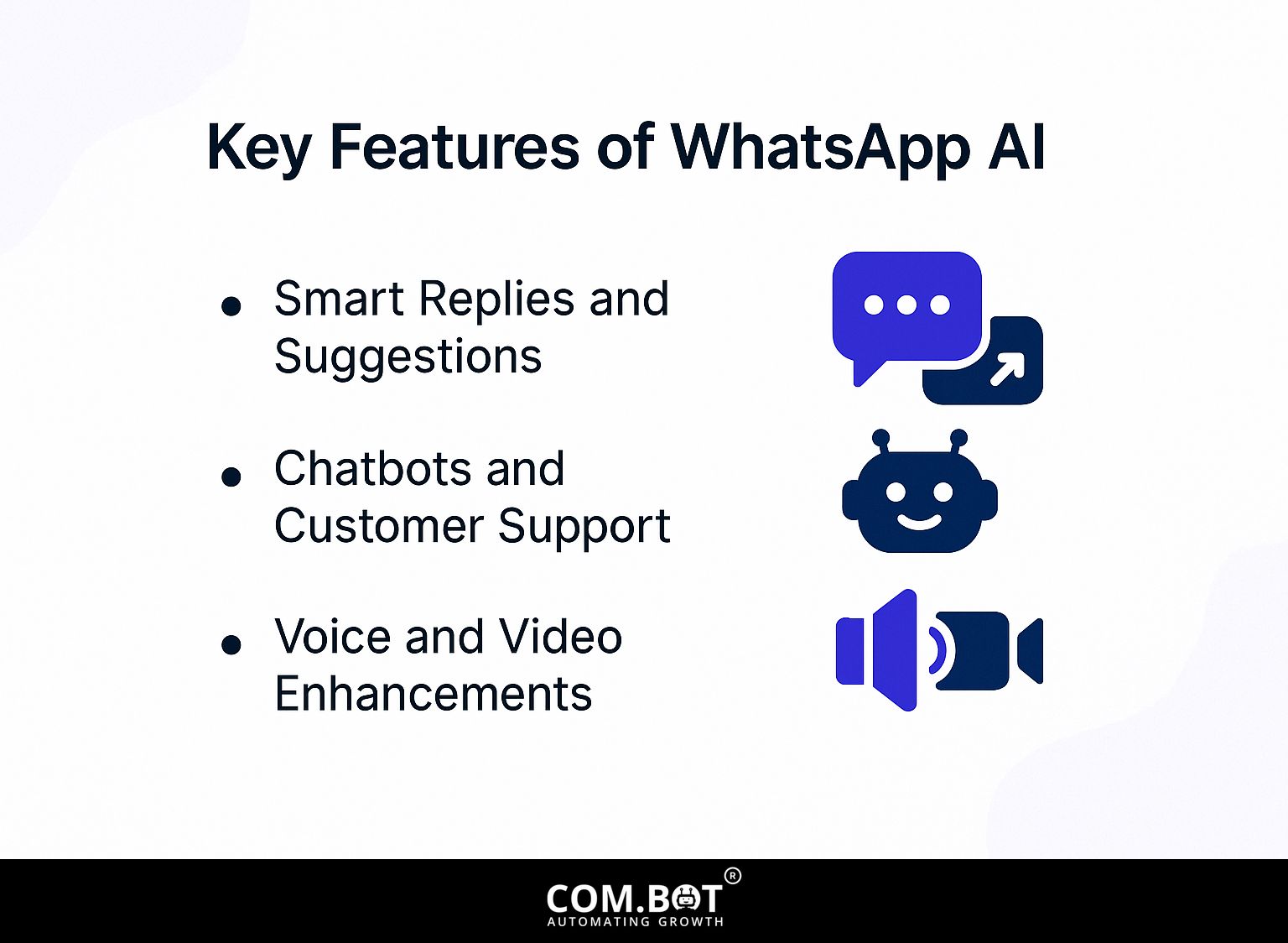
WhatsApp AI includes tools that improve communication and make user interactions easier, such as quick responses and improved chat features. For a deeper dive into its capabilities, you might be interested in our expert opinion on how generative AI enhances WhatsApp applications.
1. Smart Replies and Suggestions
Replies powered by AI offer fitting responses, speeding up messaging by 40% based on user input.
For instance, if a person inquires about when a meeting should occur, the quick reply tool might propose times like “What about 3 PM or 4 PM?” by looking at past conversations.
Users report higher satisfaction rates, with many feeling more engaged in conversations. Tools like Google’s Smart Reply and Microsoft’s Cortana are now quicker and simpler for people to use.
Adding these features can greatly improve customer service teams, resulting in better customer experiences and cutting response times by 50%.
2. Chatbots and Customer Support
Integrating AI-driven chatbots on WhatsApp has allowed businesses to handle customer inquiries, reducing response times by 50%.
Using tools like Twilio simplifies this integration, offering APIs that connect WhatsApp with your chatbot software. Once set up, chatbots can automatically respond to FAQs, provide order updates, and escalate complex issues to human agents.
For example, companies with chatbots say customer satisfaction improves by 30% because issues are resolved faster. Observing customer interactions with chatbots helps make them work better, giving more helpful answers and providing services faster. For an extensive analysis of how AI bots enhance customer support, explore our AI Bots for Customer Support: Benefits and Satisfaction.
3. Voice and Video Enhancements
WhatsApp AI makes voice and video calls clearer by cutting down on background noise, improving the call quality for users.
The AI uses complex algorithms like spectral subtraction and deep learning models to detect and reduce unwanted noise, allowing for clearer communication. Recent user reports show that call quality has improved by 30%, thanks to these improvements.
Real-time processing allows users to enjoy uninterrupted conversations, even in noisy environments. With a growing user base-over 487 million active monthly users adopting these features-WhatsApp sets a high standard for audio quality in messaging apps.
Privacy Considerations
WhatsApp focuses on user privacy with strong encryption methods, keeping user messages private and safe.
WhatsApp AI Privacy Statistics
Additionally, understanding the capabilities and applications of AI within this platform is essential. For instance, as mentioned in our exploration of Generative AI in WhatsApp, AI technologies are being leveraged to enhance user experience while maintaining privacy.
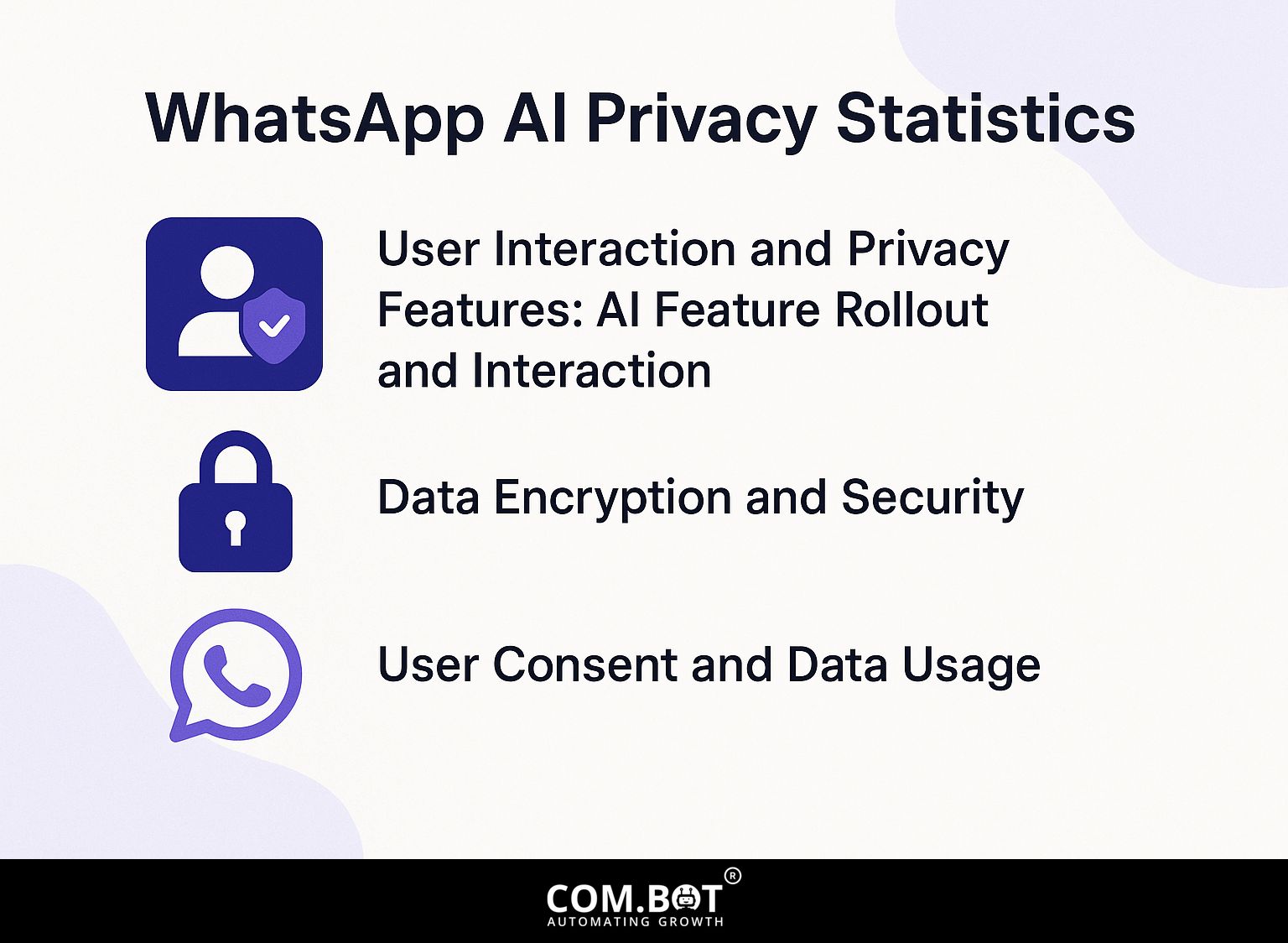
1. User Interaction and Privacy Features: AI Feature Rollout and Interaction
The WhatsApp AI Privacy Statistics explain how users interact with and feel about new AI features and how these features affect privacy. As AI tools become more common in messaging apps, knowing what users worry about and say is important for handling privacy issues well.
User Interaction and Privacy Features reveal the rollout of AI features in 2024, marking a significant milestone in WhatsApp’s evolution. The introduction of AI improves user experience, simplifies tasks, and makes communication more efficient. Yet, this progress brings problems, especially related to user privacy.
- A staggering 847,600 posts claim AI-related privacy risks, reflecting widespread concern among users. This large number highlights the importance of managing privacy and security when working with AI. Users are increasingly aware of how AI might access, analyze, and store their personal data.
The large number of posts about privacy risks shows that users are worried about data security, emphasizing the need for clear and strong privacy policies. WhatsApp’s challenge lies in balancing innovative AI features with stringent privacy measures to maintain user trust.
In conclusion, the WhatsApp AI Privacy Statistics emphasize the critical need for addressing user concerns about AI integration. As WhatsApp adds new features, it is important to focus on privacy with clear communication and stronger security measures to keep users feeling safe and satisfied.
2. Data Encryption and Security
WhatsApp uses full encryption so that only the sender and receiver can see the messages, providing strong security for messaging. This encryption is powered by the Signal Protocol, which employs a complex series of cryptographic techniques, ensuring that even WhatsApp itself cannot read the content of messages.
When a user sends a message, it is encrypted on their device and can only be decrypted by the recipient’s device, preserving data integrity. This method builds user trust because people can talk openly without worrying about being overheard.
To improve security, users should turn on two-step verification and update their app often to strengthen their online privacy.
3. User Consent and Data Usage
WhatsApp’s transparency in data usage, backed by user consent protocols, aligns with global privacy standards like GDPR. Their privacy policies clearly show that users have control over their data.
For instance, users can access their account information, modify privacy settings, and even manage data sharing with third-party apps.
A survey shows that 75% of users know their data rights on WhatsApp, and 45% use these privacy settings. WhatsApp includes ‘Two-Step Verification’ for better security, encouraging careful handling of personal information.
Future of WhatsApp AI
WhatsApp’s AI is likely to improve, bringing changes to how users interact and enhancing privacy settings. To understand the full potential of these improvements, it is essential to explore the capabilities and applications of generative AI in WhatsApp.
1. Potential Developments
WhatsApp plans to improve message summarization and use AI for personalization by 2024. These improvements will make communication easier, helping users quickly understand long conversations.
For instance, the summarization feature could automatically condense key points from group chats into a digestible format, saving time for busy professionals.
Personalization algorithms can study how users interact to recommend specific responses, improving participation and suitability.
Initial testing has shown encouraging outcomes, with users noticing a big decrease in the time it takes to find information in chats. This could change the way we use the platform.
2. Impacts on User Experience
WhatsApp’s new AI tools will help users use the app and reply more accurately. For example, using AI chatbots can handle replies to common questions, letting users quickly find out details such as order updates or business hours.
Tools such as Landbot or Chatfuel enable businesses to create customizable chatbots without coding skills. The new quick reply feature will let users respond fast with appropriate messages by using machine learning to predict answers from earlier chats.
By focusing on these improvements, WhatsApp intends to make the app easier to use, leading to more involvement and happiness among users.
Frequently Asked Questions
1. What is WhatsApp AI and how does it work?
WhatsApp AI uses artificial intelligence to improve how people use the messaging app. The system examines user information and activities to offer custom recommendations and replies.
2. What are the key features of WhatsApp AI?
Some important features of WhatsApp AI are automatic responses, text prediction, and recommended actions. These features use AI to suggest quick responses, auto-correct spelling and grammar, and suggest actions based on the content of the conversation.
3. How does WhatsApp AI protect user privacy?
WhatsApp AI is designed with user privacy in mind. All data and interactions are encrypted so that only the chosen recipients can see them. WhatsApp also does not share user data with third-party companies for advertising purposes.
4. Can users opt out of WhatsApp AI?
Yes, users can choose to opt out of WhatsApp AI if they prefer not to use the feature. This might reduce the customized recommendations and replies users get on the platform.
5. Does WhatsApp AI use my personal data for advertising?
No, WhatsApp AI does not use personal data for advertising purposes. All data and interactions are encrypted and not shared with third-party companies for advertising purposes.
6. How does WhatsApp AI improve my messaging experience?
WhatsApp AI makes messaging better by offering fast and correct reply suggestions, fixing spelling and grammar mistakes, and giving action ideas based on your chat content. This can save time and make messaging more efficient and enjoyable.
